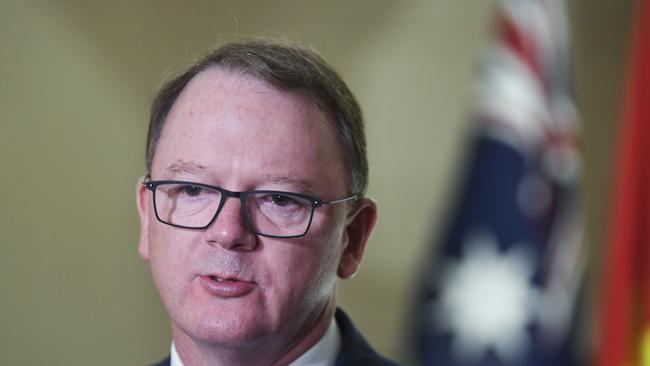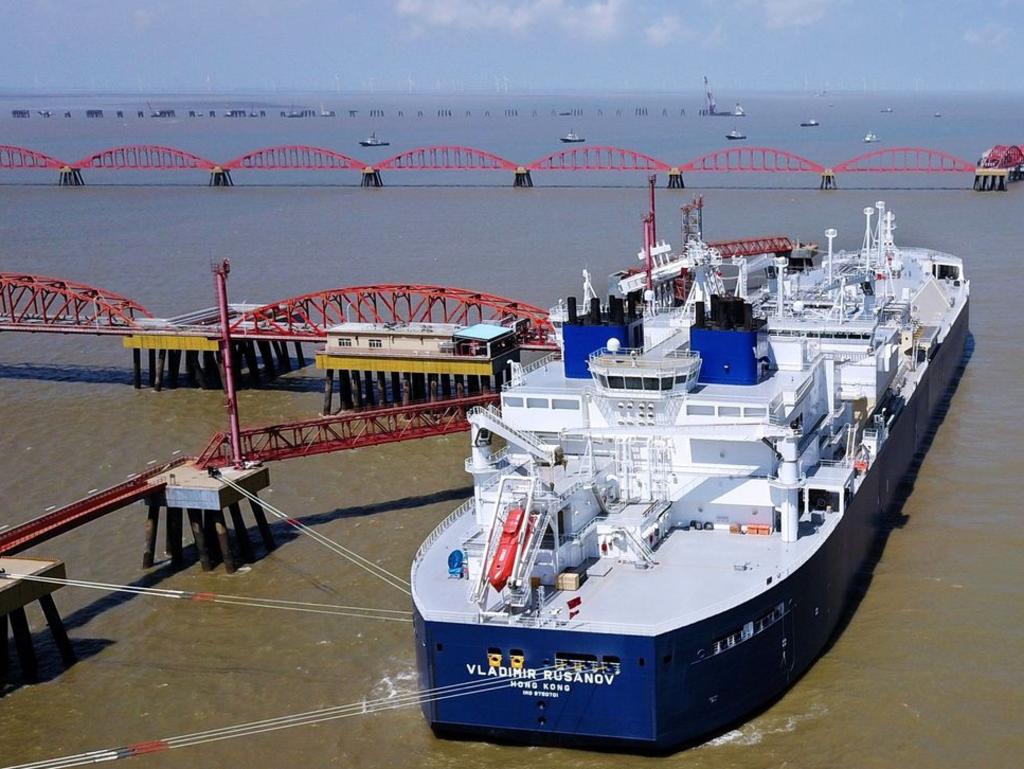Woodside set to swoop on distressed assets
The Perth oil and gas producer is open to tapping $7bn in liquidity for the right target.

Woodside Petroleum has signalled its desire to hunt down distressed oil and gas assets around the globe amid a prolonged energy crash, with the Perth producer open to tapping $7bn in liquidity for the right target.
US and European supermajors are being hit by lower earnings and slumping share prices, with oil plunging and the US shale industry forced to cut production to survive the market rout.
Woodside chief executive Peter Coleman said he expected opportunities to initially arise at an asset rather than company level.
“I think companies are more focused these days on assets than they are on company takeovers and again those companies in distress don’t want to sell their best assets first. That’s pretty natural,” Mr Coleman said.
“We are watching closely the supermajors though.
“Obviously there are assets there that supermajors have around the world and what they’re doing with impairments, debts and dividends are all insights as to what we think the appetite might be in the industry for sales at an asset level.”
Shell cut its dividend on Thursday for the first time since World War II to bolster its resilience to the oil downturn while Norway’s Equinor also slashed its investor payout this week as coronavirus decimated demand for crude.
“We still think we are still some months away before we get what we call the buyer sell spread starts to close, meaning the difference between what a buyer might be willing to pay and what a seller may be willing to sell for,” Mr Coleman said.
“It’s probably not until the third or fourth quarter of this year before you start to see some of those deals get away.”
Woodside is already in joint ventures with a number of the world’s majors including Shell, BP, ExxonMobil and Chevron.
A more immediate opportunity could arise with its Senegal oil project, with Australian junior FAR Limited potentially being forced to sell its stake due to problems raising funds.
“We’ll just watch that one very, very closely,” Mr Coleman said, while noting Woodside’s preference was for FAR to be able to meet its cash calls on the Sangomar development.
Australian energy producers have not been immune to the oil market crash although most have been fortunate in that they have been able to pull back spending from big capital projects planned for the next few years.
Oil Search, which is still working on a $20bn LNG expansion in Papua New Guinea, said it had been a volatile few months for the industry.
“What the past weeks have offered is a stark reminder that despite best laid plans, there will always be factors beyond our control — a global pandemic on top of a market share ‘war’ leading to very low oil prices,” Oil Search chairman Rick Lee said.
“But this crisis provides us with an important opportunity to refocus or, in some cases, redouble our efforts on those aspects of the business that remain under our influence.”
Oil Search boss Keiran Wulff signalled more changes may lie ahead with a “comprehensive analysis” of its PNG operating model nearly complete. It aims to cut production costs by $US1 to $US2 per barrel of oil-equivalent before restructuring costs.
“This work has been under way for some time, as part of our 2020 strategic review. We have identified a range of opportunities to reduce costs and improve productivity within our operated fields without compromising production, reliability and most importantly safety,” Mr Wulff said.
Oil Search conceded in April it would consider selling part of its prized stake in the PNG LNG project to further boost its balance sheet should a $US700m ($1.16bn) equity raising fail to overcome a prolonged oil price rout.
The energy operator has shed two-thirds of its value since January with the collapse in oil prices sparking major cost-cutting in a bid to conserve cash after it warned of “unprecedented times” in markets.
It had already announced plans to slash spending this year by 40 per cent and cut 100 jobs between its Sydney and Alaskan offices.
Woodside fell 5.9 per cent to $21.13 while Oil Search shed 7.2 per cent to $2.83.








To join the conversation, please log in. Don't have an account? Register
Join the conversation, you are commenting as Logout